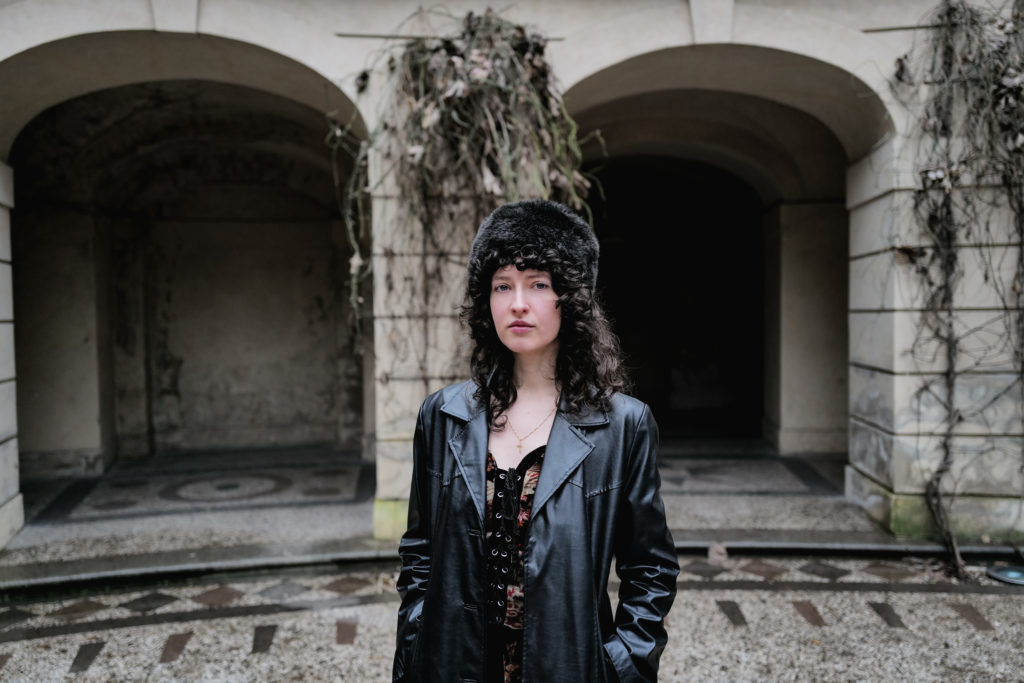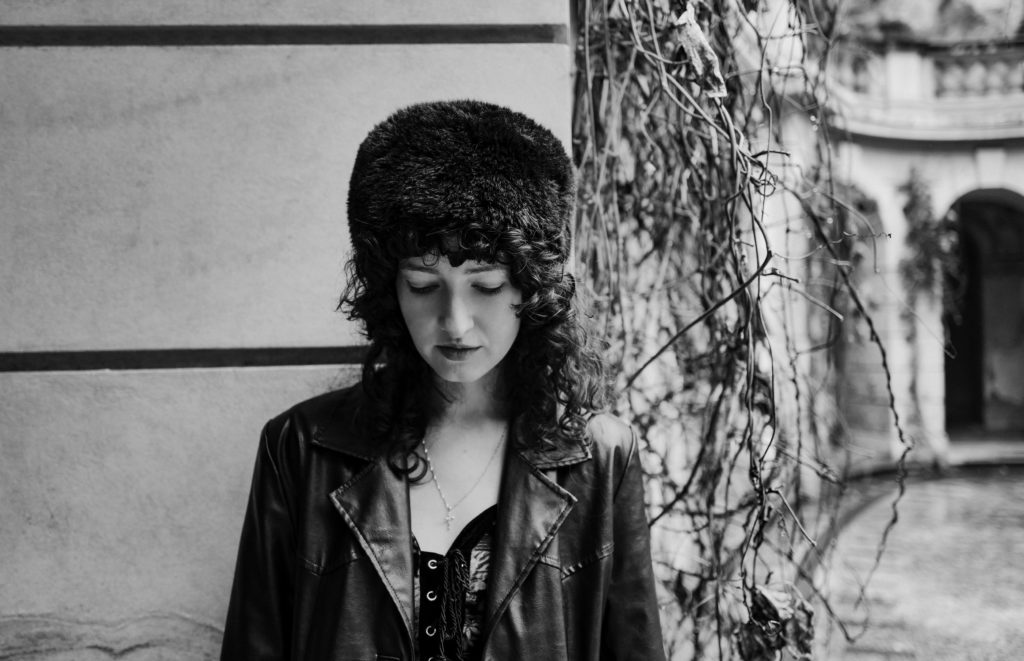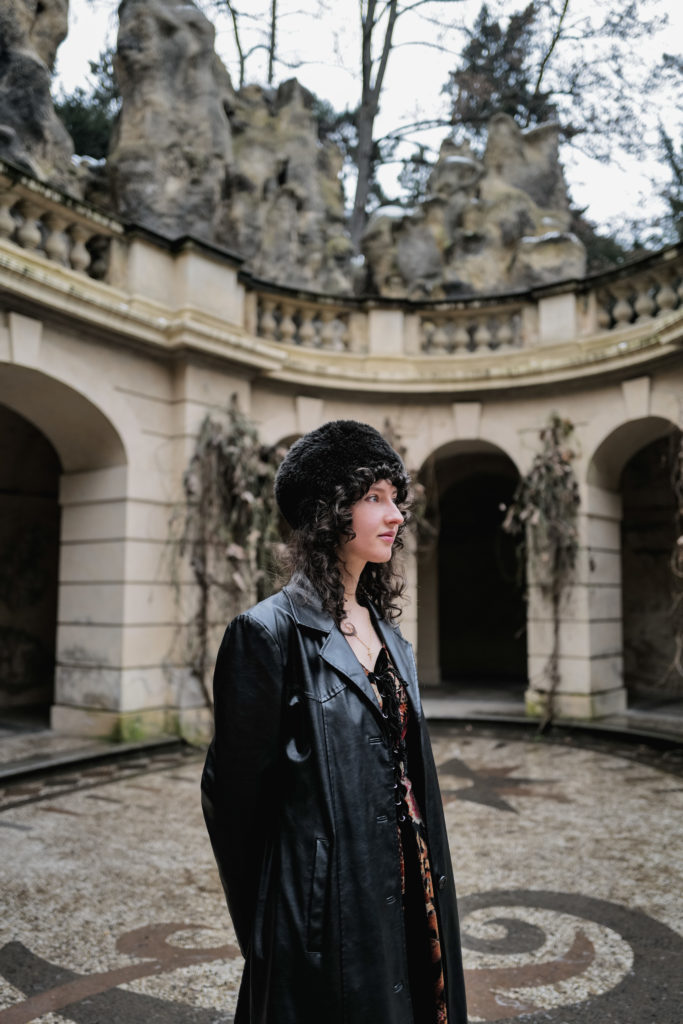Are both your parents from Ukraine?
Yes, mom was born in Ukraine. Dad’s family left the Bohemia for Ukraine at the end of the 19th century. Some Czech emigrants returned home right after the Second World War, others received an invitation from President Václav Havel in the early 1990s. Most of my family eventually returned to the Czech Republic. However, some relatives from the mother’s side still live in Ukraine.
Has Havel become an important symbol for your parents?
I think they never followed Czech politics very much. Of course, they perceived Havel as a statesman and supported him. For me personally, he embodies a certain symbol, I was most touched by his book The Power of the Powerless. He talks about a parallel society of people who try to persevere in the truth and can live with dignity even in a totalitarian regime. The effort to live in truth seems to be very relevant even today.
Do you feel that truth as a value is losing its meaning?
The truth will always be important and everyone wants to find it. Hard to pinpoint if it was ever really present. Although people are sometimes not truthful, we would generally like to live in the truth. We can find truth and misinformation in alternative and official mass media.

In your track Otěže, you sing not only about the truth, but also about lethargy. Do you see fear as a driving force that dictates the direction of society today?
Certainly. Fear is an emotion that various interest groups use to sway people to their goals. Different emotions drive us to action, and fear is definitely one of the most powerful ones. If love had such power, maybe the world would look different. Many tend to primarily avoid danger rather than enjoy a positive experience. I dare say that if there was no fear motivation, none of the parties involved would go to any war.
Listen to Dmitrievna’s album Parazit, which she released last year.
Among other things, you address the pandemic on your debut record. However, has the war in Ukraine also affected the record in some way?
I wrote most of it already in November 2021, before the war broke out. In the end, I edited some lyrics, for example in the opening song, where I sing that we are becoming subjects of the system and fear. I hope that one day the part of the text where I hope there will be silence one day, could be applied to the current situation between Ukraine and Russia. Nevertheless, the track Plyve kacha po tysini from the 4UA compilation directly refers to Ukraine. I usually don’t sing about things literally. I try to look for metaphors and images.

What is the story behind 4UA?
I had my own idea for a similar project, but then producer Jan Macháček, aka Ancestral Vision, texted me he was already working on such a compilation. That’s why I was happy to join. Each participating author had a week to deliver their own track, so the entire record was created in just 10 days. Everyone felt the need to present 4UA, in the end we collected around 30 thousand crowns to support Ukraine.
A critically acclaimed compilation
Nineteen Czech producers united against the occupation of Ukraine. On March 3, 2022, a compilation called 4UA was released, in which artists such as Aid Kid, Ursula Sereghy, Oliver Torr and Bols/Slob participated. Dmitrievna is one of the featured artists. “It took a lot of effort to make a compilation this quickly. I’m happy that I could be a part of it,” she says and continues: “I think it covered a large part of the Czech scene and represents it as a whole perfectly.” Through the Czech project 4UA, approximately 30,000 CZK was raised to support Ukraine. The compilation also earned a nomination for the prestigious Vinyla music award, which will be presented on February 22 at Lucerna Music Bar in Prague.
You can listen to the 4UA compilation for free or buy it via Unizone’s Bandcamp profile.
Have you come across Russian or Ukrainian musicians who disappointed you in how they approach the war through their art?
At the Žižkovská noc festival I was able to play in the same venue as Alina Pash. I learned about the controversy later. I don’t know if I should comment on it though. Anyway, she performed in Crimea at a time when it was already occupied by Russia, and she had to falsify documents in order to perform. In retrospect, she states that she played for the Ukrainians, so she sees nothing wrong. Others condemned her because she was doing something illegal and shady. Personally, I don’t have a strict opinion. I like her music, but the Prague concert didn’t really excite me. I didn’t like the projection with Moscow in flames and all the political speeches. She tries to actively support Ukraine, but sometimes she is already crossing the edge of nationalism.
Did you feel something similar with all the charity events in Prague?
I was pleased with the compassion and understanding the people of Prague showed. People here have empathy and want to help, perhaps because of the history with Russia and the Soviet Union. But sometimes I wonder where all the money actually goes to. I have seen videos of soldiers without weapons and equipment. There has always been corruption in Ukraine, and I’m afraid it still is. The idea of someone profiting from the death of their own citizens hurts me. I hope I’m wrong. No one expected the war to last so long.

On the contrary, did the anti-Ukrainian demonstrations in European capitals affect you or your family?
I noticed them and I don’t want the Czechs to scold the Ukrainians for taking their jobs. On the other hand, I understand that Czechia has its own problems, and some individuals are annoyed that financial support is going beyond the borders to the war. According to them, the government does not look after its own citizens, but takes care of foreigners outside the country. I noticed public transport drivers who approach Ukrainian and Russian-speaking passengers quite harshly. Approximately 488 thousand Ukrainians already live in the Czech Republic and the tension is growing. However, they pay taxes and thus contribute to the Czech economy. There are millions of Ukrainians on the territory of Poland, and it is therefore an even greater challenge. People are afraid for their own life and future.
Did you go abroad to Ukraine with your parents as a child?
Very often. We didn’t go to the sea on vacation, but to Ukraine. Some of my favorite childhood memories include spending time together in my grandmother’s yard. I mainly remember village and small-town life from Ukraine. Ukrainian roads and streets are very significant for me, they look completely different than in Czechia. Some cities often resemble a large village with an urban center and shopping mall. My grandparents lived in the north, so I never visited Crimea or the tropical part of the country.
Does grandma still live there?
Yes, together with my aunt, uncle and cousin. We are in contact, at the beginning of the war, we talked a lot. Fortunately, the Russian army stopped not far from them. My aunt recently told me stories on the phone about what they had been through and what tragedies happened in the neighborhood recently. They definitely don’t have it easy.
Would you say that Ukrainians are generally more patriotic than Czechs?
Undoubtedly. Czechs like to remember the nation’s history during national holidays, headed by November 17 and October 28. At the same time, there is a certain group of more right-wing patriots here. People often laugh at them, but I think that being patriotic is nothing embarrassing. Unless it crosses certain boundaries. But in general, it seems to me that in the Czech Republic it is mainly a matter of romantic remembrance of the past. In Ukraine, almost every family has gone through some kind of suffering, and oppression by Russia is still relevant.

Dmitrievna
Her Ukrainian parents moved to the Czech Republic in the early 1990s at the invitation of President Václav Havel. After her studies, Dana spent several years in Berlin, where she devoted herself to writing and producing her own music. The stage name Dmitrievna is a homage to her father who is called Dmitrij. In Germany, she collaborated with the Argentinian producer Catnapp. In 2022, Dmitrievna released her debut album Parazit and drew attention to herself with a music video Na útese, which was a great success on TikTok.
